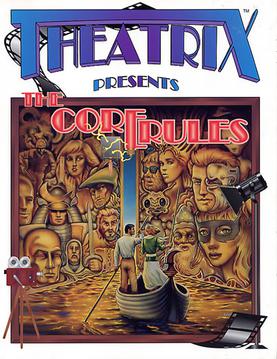Byron the Bard has been thinking about the origin of RPGs, and been musing on some questions like: were they born by chance? Or were they the natural outgrowth of predetermined factors? What was the likelihood of them ever being developed? The bard thinks that there are some essential aspects of contingency and fragility in this process, and has collected some thoughts here (
post) and would like to listen to other opinions too!
All the needed elements were present in 1895...
GM Moderated wargaming (Kriegspiel) including strong GM options (Frei Kriegspielle)
fantastic settings (HG Wells)
Storytelling parlor games (one of which resulted in Frankenstein)
Miniatures Wargaming (not actually part of Kriegspiel... but Wells was doing it, and writes up the system for publication a decade later)
Randomized result wargaming (Kriegspiel)
Classroom role-play was in use in the 19th C as well, but specifics are not well documented, in the "envision if you will..." followed by "What would you have done?" prompting. (The most widespread is 20th C... It was surging with the Model UN in the 60's, tho' it dates back to 1927 as a Model League of Nations...)
So what was missing? Putting them together and maybe the influence of 1960's rise of Improv as entertainment.
Was it inevitable? Probably not - but it's probably a likely thing, and would have arisen in a couple more years if Dave and Dave hadn't made the leap in the late 1960s, or if Dave Arneson had not having gone to Gygax...
All the bits were there for 70 years before D&D hit it big. I'm pretty certain that, had it been explained to him, HG Wells would have embraced RPGs every bit as much as he did wargaming.





